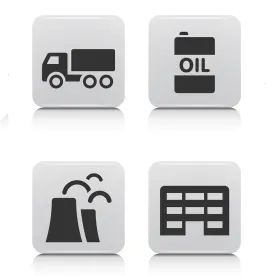As of 20 July 2020, Phase 1 of the UK’s Industrial Energy Transformation Fund (IETF) is open for applications for grants, according to the Department for Business, Energy and Industrial Strategy (BEIS).
The IETF, announced in the UK’s 2018 autumn budget, is designed to assist the transition of high energy use businesses into a lower carbon future economy. £289 million of the IETF’s total £315 million fund is available to businesses in England, Wales and Northern Ireland, with the remaining £26 million allocated to Scotland for use in a separate programme (details of which are expected to be published later in 2020).
The £289 million allocated to England, Wales and Northern Ireland will be invested in two phases:
-
Phase 1 (which, as noted above, opened on 20 July 2020) with up to £30 million of funding to be managed by Innovate UK, a public body established by the UK government to drive business innovation; and
-
Phase 2 (which will launch in 2021) to allocate the remainder of the fund.
Eligible businesses
Phase 1 of the IETF is open to:
-
organisations within the manufacturing Standard Industrial Classification (SIC) codes 10-33; and
-
data centres.
Industrial businesses of any size can apply, either on their own or in collaboration with other organisations. The lead applicant must operate at an eligible site in England, Wales or Northern Ireland.
Applicants must be eligible to receive state aid under the applicable European Union state aid rules at the time it is confirmed they will receive funding from the IETF.
Eligible projects and studies
Phase 1 of the IETF provides funding across two strands:
-
projects deploying technologies that improve energy efficiency, specifically in relation to industrial processes (with this strand expected to receive the majority of funding); and
-
feasibility and engineering studies of energy efficiency and deep decarbonisation projects.
To qualify as an energy efficiency deployment project, applicants will need to demonstrate energy savings (measurable in kWh) determined by measuring or estimating energy consumption before and after the implementation of an energy efficiency improvement. The project must be carried out at a single manufacturing site or data centre in England, Wales or Northern Ireland. At the end of the project the applicant must have installed and begun to operate or be ready to operate the energy efficiency technology.
A project under this strand must:
-
start by 1 April 2022;
-
end by 31 March 2024; and
-
have a minimum total grant funding of £250,000
To qualify as a feasibility or energy efficiency study, an applicant must undertake a study to develop either energy efficiency or a ‘deep decarbonisation project’ that enables possible subsequent deployment. A deep decarbonisation study must result in a significant reduction in the greenhouse gas emissions of an industrial process, but which may not necessarily have an energy efficiency benefit.
A project under this strand must:
-
have total eligible project costs of at least £60,000 and last up to 12 months if it is a feasibility study;
-
have total eligible project costs of at least £100,000 and last up to 24 months if it is an engineering study (experimental development);
-
start by 1 October 2021; and
-
end by 30 September 2023.
Applicants under each strand may include multiple projects within a single application provided the projects are located at the same site. If an applicant wishes to run a similar project at additional sites, then they will need to submit a separate application for each site. A site is defined as the postcode, or multiple directly adjoining postcodes, at which the project takes place.
Funding available
Phase 1 funding will be provided as grants, and:
-
the minimum grant companies can receive for energy efficiency deployment projects will be £250,000;
-
the total eligible costs for an engineering study (experimental development) must be at least £100,000; and
-
the total eligible costs for feasibility studies must be at least £60,000.
Monitoring and evaluation
Participating businesses will be required to submit data throughout their projects and, for technology deployment projects, for five years following the end of the project. This data will be used by IETF to evaluate projects both against proposals and in terms of whether the IETF’s aims have been achieved.
Application deadline and process
Applications for funding must be made by 11:00 a.m. on Wednesday 28 October 2020. Applicants will be notified of the outcome of their applications on 27 January 2021.
Applications should, once the detailed eligibility criteria, et cetera, have been reviewed, be made online via the online application portals established by BEIS:
Further information on the IETF is available from BEIS.
* This GT Alert is limited to non-U.S. matters and law.



 />i
/>i
